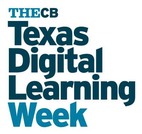
Recording from Texas Digital Learning Week.
- Subject:
- Higher Education
- Material Type:
- Primary Source
- Author:
- Liz Tolman
- Date Added:
- 01/04/2024

Recording from Texas Digital Learning Week.
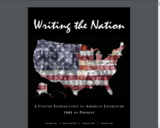
This books contains readings and questions for 1865 to the Present.
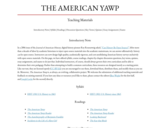
On this page, we have offered syllabi, course readings, chapter-by-chapter discussion questions, key terms, quizzes, essay assignments, and exams to do just that. Individual instructors, of course, should always govern their own curriculum and be able to determine their own pedagogy. Rather than attempting to build a common curriculum, these resources are designed merely as a starting point. Like our text, they are licensed openly (CC-BY-SA): you are encouraged to use them, download them, distribute them, and modify them as you see fit. Moreover, The American Yawp is, as always, an evolving, collaborative project. We welcome the submission of additional teaching materials and feedback on existing material. If you have any ideas or resources you’d like to share, please contact the editors (Ben Wright for the first half, and Joseph Locke for the second) directly.
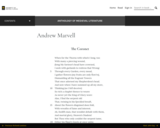
Collection of Andrew Marvell's poems including "To His Coy Mistress" and "The Mower Against Gardens."
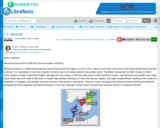
Introduction and full text of Beowulf
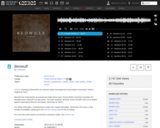
LibriVox recording of Beowulf by an unknown author (translated by Francis Barton Gummere). Read in English by Tad E.Beowulf was composed by an anonymous Anglo-Saxon poet. Francis Barton Gummere translates this beautiful poem. Beowulf is an epic poem. The main character, Beowulf, proves himself a hero as he battles against supernatural demons and beasts. (Summary by Tad E.) For further information, including links to online text, reader information, RSS feeds, CD cover or other formats (if available), please go to the LibriVox catalog page for this recording. For more free audio books or to become a volunteer reader, visit LibriVox.org.Download M4B (76MB)
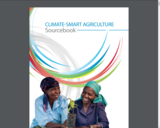
The drafting of this Sourcebook on Climate-Smart Agriculture, Forestry and Fisheries has been a collaborative
effort involving professionals from within several departments of FAO and a variety of partner organizations.
Many individuals played a leading role as main authors and coordinators in the preparation of the modules,
while others made written contributions to the Modules’ boxes and case studies.
The conceptualization and production of this sourcebook was coordinated by Lucia Palombi and Reuben Sessa,
under the overall supervision of the Director of the Climate, Energy and Tenure Division of FAO Xiangjun Yao and
the Senior Natural Resources Officer Tiina Vähänen. Editorial support was provided by Denise Martínez Breto,
Kaisa Karttunen, Gordon Ramsay and Alessandra Bresnan while the graphic design was elaborated by Maria
Guardia and Fabrizio Puzzilli.
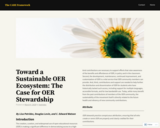
The creation, curation, and widespread use of open educational resources (OER) is making a significant difference in democratizing access to a high-quality education. From a burgeoning movement launched over 15 years ago, to a growing field, to national and global impact, teachers and learners in increasing numbers are participating in and benefiting from a process driven by the collaborative development and sharing of educational materials that are freely available for anyone to use, unrestricted by traditional copyright.
If the field of OER is to continue on its trajectory from a nascent movement to the mainstream of education, it is incumbent on OER advocates and stakeholders—including educators, librarians, instructional technologists, and content developers—to address how we might sustainably scale the movement over time and across diverse contexts, while still staying true to the values of openness that attracted so many to OER in the first place.
It is for that reason, we developed and are pleased to introduce the CARE Framework. Its purpose is to both support and make more explicit the valuable work that is being done and needs to be done in building a sustainable open education ecosystem.
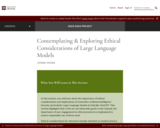
In this section, you will learn about the importance of ethical considerations and implications of Generative Artificial Intelligence (GenAI), particularly Large Language Models (LLMs) like ChatGPT. This section highlights that LLMs are not inherently good or bad. Instead, the importance of user engagement in ethical practices is emphasized to ensure responsible use of these tools.
Ethical considerations for educators include attention to student privacy, expectations, and consequences—all of which should clearly be defined in syllabus statements, classroom policies, or institutional statements. Meanwhile, ethical implications exist involving varying ethical standards for how people approach LLMs differently, how human and machine bias influence GenAI, and how style guides differ on citing information garnered from ChatGPT.
After reading this section, you should be able to articulate your own ethical queries and concerns related to LLMs, such as ChatGPT, both as a general user and an educator.
Author: C. Anneke Snyder
Contributors: Gwendolyn Inocencio, Mary Landry, Jonahs Kneitly
Designers: Irene AI, Sweta Kailani
Supervisors: Terri Pantuso, Sarah LeMire
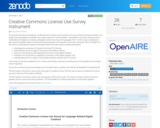
Overview: This survey instrument is designed to understand how creators use (or decide not to use) Creative Commons licenses. The target survey participants are people who create materials for documentation, maintenance, instruction, learning, and/or revitalization of Indigenous, minority, endangered, and/or low-resourced languages. Part 1 of this survey is designed to learn about the digital creation formats and sharing practices in this specific community of practice. Parts 2 through 4 of this survey contain general questions intended to elicit information about research participants’ knowledge and awareness of Creative Commons (CC) licenses; understanding of how to apply CC licenses to their digital creations; interest in and experience with applying CC licenses to their digital creations; motivations for and barriers to applying CC licenses to their digital creations; and understanding of how to adapt or reuse digital creations licensed with CC licenses.
This survey can be easily adapted for use in other communities of practice by editing some of the questions and multiple-choice responses.
If you wish to read this survey and background information about it, please start with the file ReadMe-CCLuseSurvey.pdf.
The file Creative_Commons_License_Use_Survey.qsf is a Qualtrics Survey File that can be used to recreate this survey in your own instance of the Qualtrics software.
The file Creative_Commons_License_Use_Survey.pdf is a PDF of the survey. This version includes Creative Commons graphics that are used in the survey questions. The file ReadMe-CCLuseSurvey.pdf does not include the graphics.

CI/CA Submission

Thank you for your interest in the Cyber Infrastructure and Cloud Architecture monthly meeting. Did you miss our recent meeting on Tuesday, October 15, 2024? Please look at the Power Point to catch up with conversations and email any questions to BRICCSTX@sjcd.edu. Thank you for your continued support.

Hello, thank you for joining BRICCS-TX! Did you missed our meeting on Tuesday, October 15, 2024. Please look over our meeting minutes agenda, and send all questions to BRICCSTX@sjcd.edu. Thank you for your contiuned support.

Hello BRICCS-TX Participants, Thank you for your interest in the Cyber Infrastructure and Cloud Architecture monthly meeting. Did you miss our recent session on Tuesday, September, 17 2024 or need a refresher? Please see meeting minutes agenda for futher discussion, and email all questions to BRICCSTX@sjcd.edu. Thank you for your continued support.

Hello BRICCS-TX Participants,Thank you for your interest in the Cyber Infrastructure and Cloud Architecture monthly meeting. Did you missed our recent session on Tuesday, September 17, 2024 or need a refresher? Please take a look at our meeting PowerPoint and email all your questions to BRICCSTX@sjcd.edu. Thank you for your continued.

Hello BRICCS-TX partincipants, Thank you for your interest in the Data Access and Analytics monthly meeting. Did you missed our recent session on Tuesday, October, 22, 2024? Please take a look at the Data Access and Analytics PowerPoint, that was shared during the meeting. Please email all of your questions, to BRICCSTX@sjcd.edu. Thank you for your continued support.

Hello BRICCS-TX partincipants, Thank you for your interest in the Data Access and Analytics monthly meeting. Did you missed our recent meeting on Tuesday, September, 24, 2024? Please take a look at the Data Access and Analytics PowerPoint, that was shared during the session. Please email all of your questions, to BRICCSTX@sjcd.edu. Thank you for your continued support.

Hello BRICCS-TX Participants, Thank you for your interest in the Data Access and Data Analytics monthly meeting. Did you miss our recent session on Tuesday, October, 22, 2024 or need a refresher of the material presented? Please see meeting minutes agenda for futher discussion, and email all questions to BRICCSTX@sjcd.edu. Thank you for your continued support.

Hello BRICCS-TX Participants, Thank you for your interest in the Data Access and Data Analytics monthly meeting. Did you miss our recent session on Tuesday, September, 24, 2024 or need a refresher of the material presented? Please see meeting minutes agenda for futher discussion, and email all questions to BRICCSTX@sjcd.edu. Thank you for your continued support.
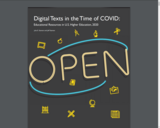
The Fall 2020 term served as a litmus test of how well the evolving course material distribution and selection process works for U.S. higher education. More faculty than ever before had to select and adapt their course materials, with less time than previous years to explore their options and make decisions.